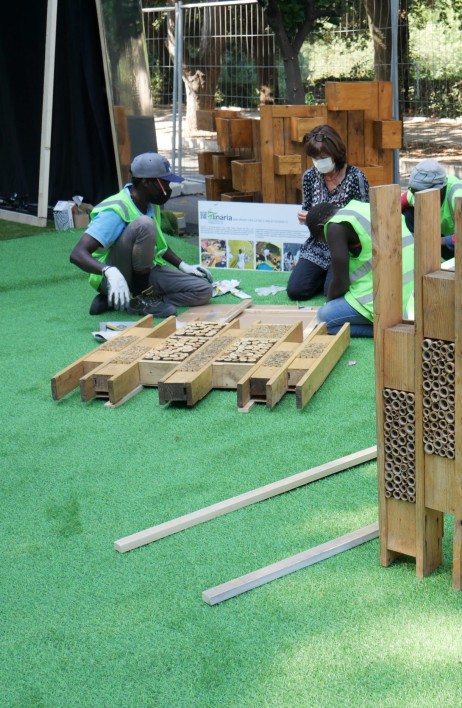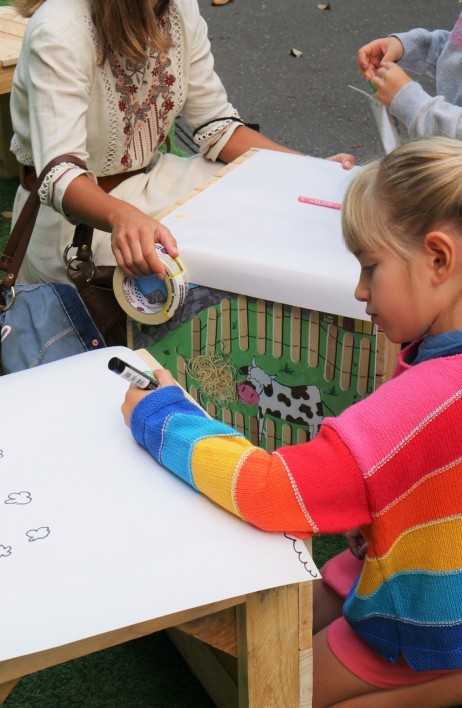1. Zero poverty
END POVERTY IN ALL ITS FORMS EVERYWHERE - Despite significant progress in the fight against poverty, more than 800 million people—70% of whom are women, still live in conditions of extreme poverty. The new Sustainable Development Agenda aims to eradicate extreme poverty by 2030.
2. Zero hunger
END HUNGER, ACHIEVE FOOD SECURITY, IMPROVE NUTRITION AND PROMOTE SUSTAINABLE AGRICULTURE - Undernourishment affects nearly 800 million people worldwide. The 2030 Agenda aims to end hunger and all forms of malnutrition globally within the next 15 years.
3. Good health and well-being
ENSURE HEALTHY LIVES AND PROMOTE WELL-BEING FOR ALL AT ALL AGES - Achieving sustainable development requires ensuring healthy lives and promoting well-being at every level.
4. Quality education
ENSURE INCLUSIVE AND EQUITABLE QUALITY EDUCATION AND PROMOTE LIFELONG LEARNING OPPORTUNITIES FOR ALL - Quality education is the foundation for improving people’s lives and achieving sustainable development. For example, gender parity in primary education has been achieved globally, but few countries have reached this goal at all levels of education.
5. Gender equality
ACHIEVE GENDER EQUALITY AND EMPOWER ALL WOMEN AND GIRLS - Gender inequality remains one of the greatest barriers to sustainable development, economic growth, and poverty reduction. Key issues such as violence against women, economic disparities, and the low participation of women in political decision-making are still highly relevant today.
6. Clean water and sanitation
ENSURE AVAILABILITY AND SUSTAINABLE MANAGEMENT OF WATER AND SANITATION FOR ALL - Accessible and clean water is a fundamental part of the world we want to live in. Our planet has enough fresh water to achieve this goal.
7. Affordable and clean energy
ENSURE ACCESS TO AFFORDABLE, RELIABLE, SUSTAINABLE AND MODERN ENERGY FOR ALL - Since sustainable development relies on both economic growth and climate action, the goal is to significantly increase the share of renewable energy in the global energy mix and to double the global rate of improvement in energy efficiency.
8. Decent work and economic growth
PROMOTE SUSTAINED, INCLUSIVE AND SUSTAINABLE ECONOMIC GROWTH, FULL AND PRODUCTIVE EMPLOYMENT AND DECENT WORK FOR ALL - According to current data, more than 200 million people worldwide are unemployed, especially young people. Employment and economic growth play a crucial role in the fight against poverty.
9. Industry, innovation and infrastructure
BUILD RESILIENT INFRASTRUCTURE, PROMOTE INCLUSIVE AND SUSTAINABLE INDUSTRIALIZATION AND FOSTER INNOVATION - Investments in sustainable infrastructure, scientific research, and technological innovation drive economic growth, create jobs, and promote prosperity.
10. Reduced inequalities
REDUCE INEQUALITY WITHIN AND AMONG COUNTRIES - Inequalities limit people's opportunities to participate in social life and to make meaningful contributions to cultural, political, and economic development.
11. Sustainable cities and communities
MAKE CITIES AND HUMAN SETTLEMENTS INCLUSIVE, SAFE, RESILIENT AND SUSTAINABLE - Cities are home to over 80% of global economic activity and therefore have a major environmental impact. They occupy only 3% of the Earth's surface but account for three-quarters of global resource consumption and 75% of global emissions.
12. Responsible consumption and production
ENSURE SUSTAINABLE CONSUMPTION AND PRODUCTION PATTERNS - Sustainable consumption and production means promoting resource and energy efficiency, building sustainable infrastructure, and ensuring access to basic services, environmentally friendly jobs, and a better quality of life for all.
13. Climate action
TAKE URGENT ACTION TO COMBAT CLIMATE CHANGE AND ITS IMPACTS - Climate change is a global challenge that knows no borders. Emissions occur everywhere and affect everyone. It requires coordinated international solutions and cooperation to support developing countries in transitioning toward low-carbon economies.
14. Life below water
CONSERVE AND SUSTAINABLY USE THE OCEANS, SEAS AND MARINE RESOURCES FOR SUSTAINABLE DEVELOPMENT - Pollution and overexploitation of our oceans are causing increasingly severe problems, including major threats to biodiversity, ocean acidification, and the growing accumulation of plastic waste.
15. Life on land
PROTECT, RESTORE AND PROMOTE SUSTAINABLE USE OF TERRESTRIAL ECOSYSTEMS - The conservation and sustainable use of biodiversity are vital for social and economic development, as well as for the survival of humanity.
16. Peace, justice and strong institutions
WITHOUT PEACEFUL AND INCLUSIVE COMMUNITIES AND EFFECTIVE GOVERANCE, DEVELOPMENT CANNOT BE SUSTAINABLE - This goal promotes peaceful and inclusive societies for sustainable development, universal access to justice, and the establishment of accountable and effective institutions at all levels.
17. Partnerships for the goals
STRENGTHEN THE MEANS OF IMPLEMENTATION AND REVITALIZE THE GLOBAL PARTNERSHIP FOR SUSTAINABLE DEVELOPMENT - Sustainable development requires partnerships between governments, the private sector, and civil society. These partnerships must be built on shared principles, values, vision, and goals that place people and the planet at the center, at global, regional, national, and local levels.




